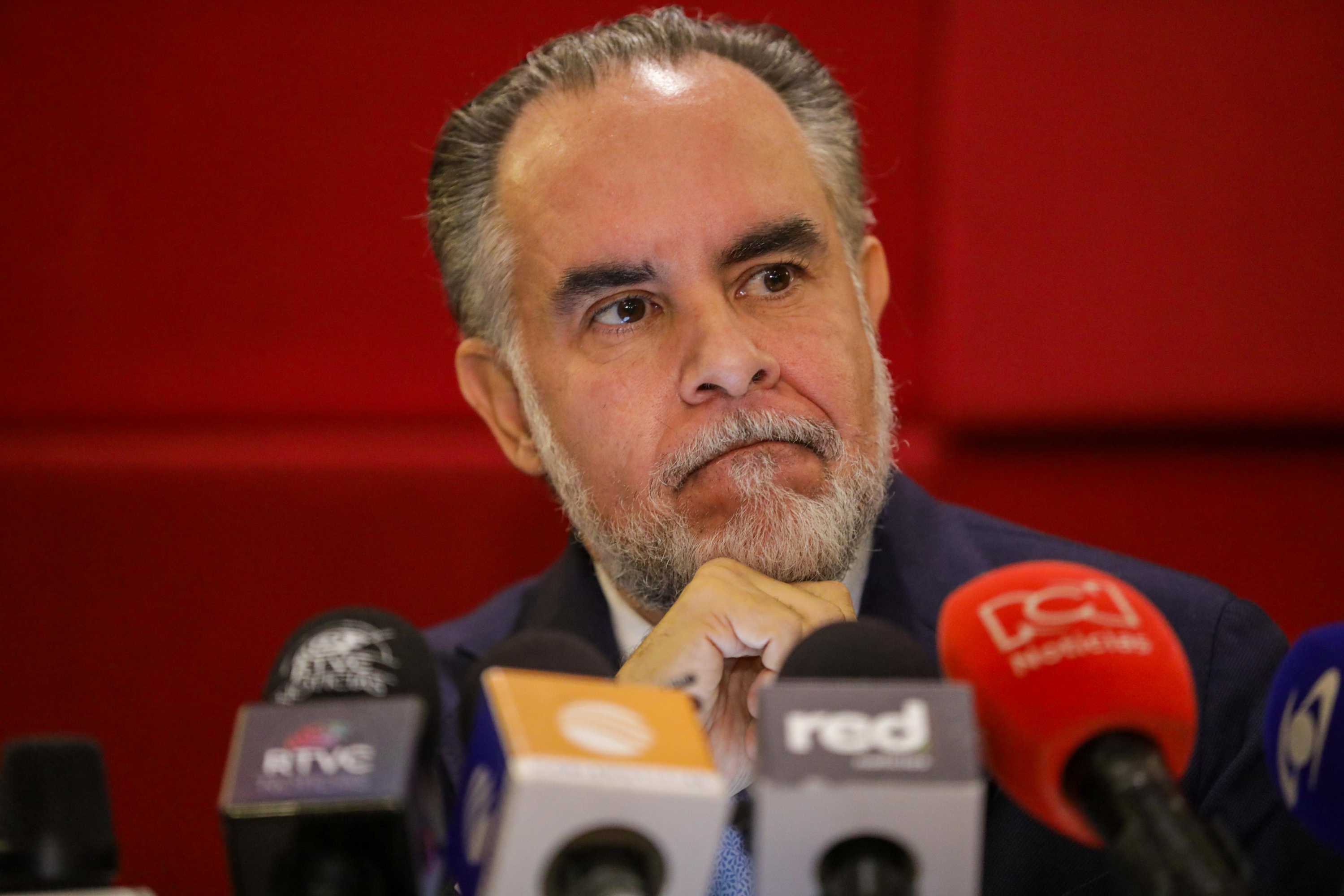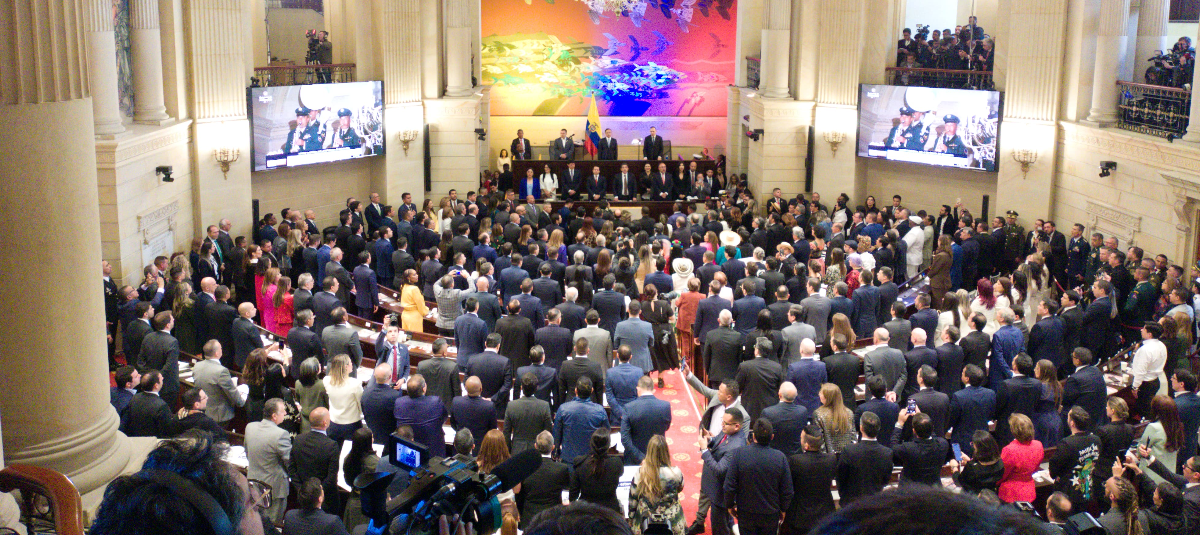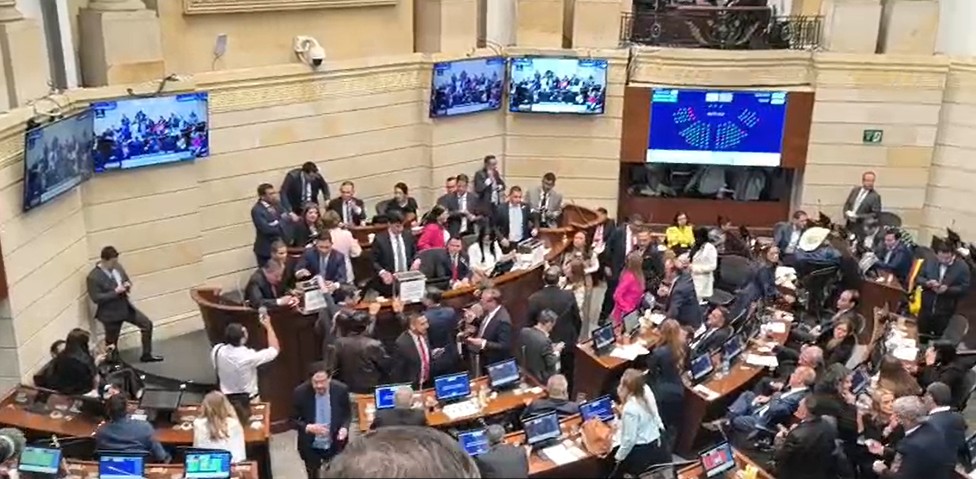Public order, health, and fiscal deficit: three major issues facing President Gustavo Petro in his final year in office.

August 7 marks the third anniversary of the president's assumption of power. At the start of the final 12 months of the Petro administration , EL TIEMPO compiled the pending tasks in the main areas of government: ensuring the 2026 elections, addressing the public order crisis, and settling the nation's financial obligations, among others.
Politics: Elections and reforms, the main themes of the political year Given the doubts that exist in various sectors about the holding of the 2026 elections, one of the main challenges for the National Government in its final year will be to ensure that the elections are carried out with all the necessary guarantees. To this end, the Nariño National Assembly will have a primary mission: to stop the attacks that have been carried out against the Registry Office.

Armando Benedetti, Minister of the Interior. Photo: César Melgarejo
But President Gustavo Petro, who has insisted that he is not seeking reelection and that his plan is for someone from his political party to assume the leadership of state on August 7, will also have to distance himself from some voices within his own cabinet who are shouting "reelection."
“The same thing will happen in Colombia. How great,” said Chief of Staff Alfredo Saade, regarding the approval of reelection in El Salvador. Regarding precisely these kinds of comments, former ambassador Roy Barreras, in an interview with this newspaper, said that “there are delusional voices generating unnecessary noise. That's why I believe this is Petro's year, because it's the year in which he has the opportunity, and will do so, I'm sure, to reaffirm his commitment to democracy and to the institutions.”
In this context, more than a dozen political parties have rejected the government's role as guarantor of the elections and have asked the Attorney General, Gregorio Eljach, to build bridges. Thus, a priority task will be to restore confidence in the electoral system.
“The communication from senior officials is worrying, as they express doubts and concerns about the transparency of the elections nine months before the elections. It's too early to say there may be a lack of transparency. When you're an authority, you have to be specific,” said Alejandra Barrios, director of the EOM.

Congress inauguration today, July 20, 2025. Photo: Néstor Gómez. EL TIEMPO
And amid the intense campaign, which will be a priority for both the government—the president constantly talks about the elections—and Congress, the Nariño House will seek to advance an ambitious and unusual legislative agenda.
Historically, the fourth and final year of Congress is reserved for smaller projects, but this time the Executive Branch will insist on pushing through its healthcare reform, which is in its third of four debates . Added to this is a subservient law that has been questioned even by President Petro's allies on peace issues. Approving the budget, which is underfunded, and the tax reform needed to achieve the 557 billion peso budget will also be a challenge.
But to move these initiatives forward within this complex timeline, relations with Congress are another challenge. Two years have seen bitter clashes between the executive and legislative branches, primarily with the Senate. With the new president of that body, Lidio García, it was thought the confrontation would subside, but two weeks after the Liberal president took office, there have already been several clashes.
Budget execution has been one of the biggest headaches of this administration, and there has been considerable expectation this past year because the President himself has said that this is the key to his political project's reelection. Faced with this challenge, he announced that cabinet changes will be coming. The shakeup already began on Friday with the departure of Carlos Rosero from the Ministry of Equality and the arrival of former porn actor Juan Carlos Florián.

Voting to elect the Senate president. Photo: EL TIEMPO
In three years, 54 ministers have passed through the Casa de Nariño government, the highest average of recent administrations. This high turnover, according to critics, has been one of the consequences of poor execution .
Respect for institutions and compliance with the Constitution, which calls for harmonious collaboration between public powers, will be crucial in this final year, especially in the midst of elections and the threat of illegal groups.
The positive in politics Contrary to the government's narrative of a legislative blockage, the executive branch has approved more than 10 major reforms in Congress in three years: labor, pensions, and Mini-Equality, among others.
The holding of COP 16 in Cali last November was one of the government's major achievements. At that event, the country excelled and demonstrated its authority on biodiversity.
- Strength of Institutionality
Despite various moments of institutional tension, the institution has responded to the various challenges and has allowed complex episodes to be resolved, thus avoiding disruptions.
The negative side of politics The controversial decree calling for the referendum has been one of the weak points of this government. That decree was rejected by broad sectors and institutions.
Although there has been talk of seeking a national agreement for two years, nothing has been achieved. Some sectors speak of a lack of will on the part of the Executive Branch, but neither have any parties come to the table.
The government has been marked by cabinet bidding, which ceased to be rumors when the country witnessed the controversial televised cabinet meeting on February 4.
eltiempo





